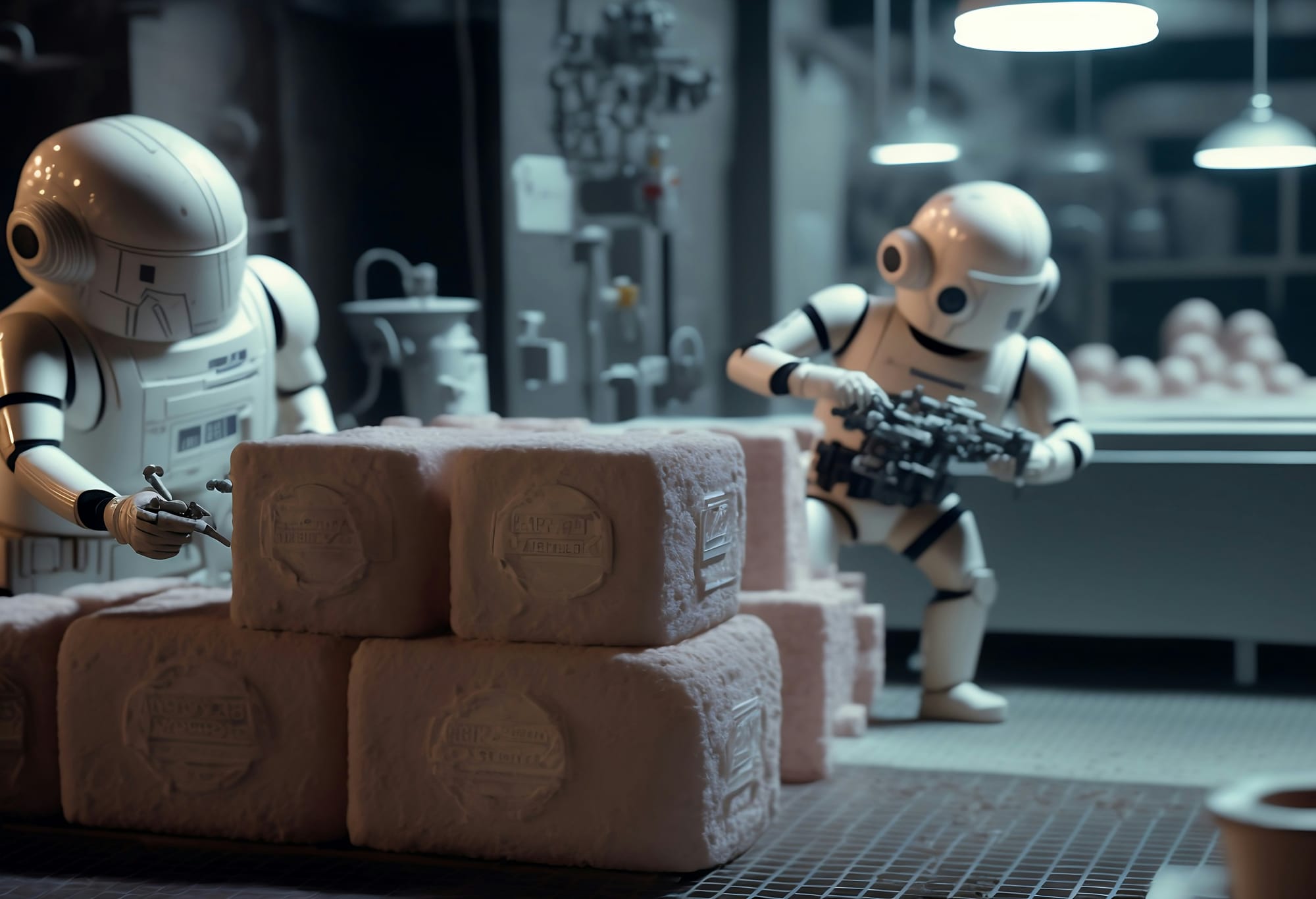Dear Peter: will AI take my job?
No, but maybe it wrote this post!

Dear Peter,
I’m anxious that my job as a software engineer may soon be replaced by AI/LLMs. This thought is both debilitating and discouraging, making it difficult to invest my energy and resources into a profession that might become obsolete. What should I do?
Yours,
Anxious
Dear Anxious,
I completely understand that pit-in-your-stomach feeling. When ChatGPT started spitting out code snippets that actually worked, plenty software engineers out there felt a collective "uh oh" moment. It's like being a gondolier and seeing the first motor boat chug past in the canal – should I double-down on nautical operettas, or start looking for an exit strategy?
Let me give you my perspective on this, having worked alongside many software engineers and watched technology evolve over the years.
The reality check
First, let's separate fact from fear. The reality is:
- AI will absolutely change software engineering
- AI will absolutely not replace software engineers
That might sound contradictory, but here's why it's true: AI excels at generating solutions to well-defined problems within established patterns. But it falls flat in the most valuable aspects of software engineering: understanding the actual human problems that need solving, making architectural decisions that balance competing priorities, and knowing when to break "best practices" because the context demands it.
Think about how we got here: all these LLMs were trained on code that human engineers wrote. They're incredibly sophisticated pattern-matching machines, but they're regurgitating and recombining human creativity – not replacing it.
In a word, LLMs are still not able to collect the full context and come to measured, true-to-life conclusions about end-to-end development. I recognize that there's a lot of marketing around "reasoning" models, and that these models are developing quickly. But it will be a long time yet until they can come up with novel solutions to novel problems they weren't trained on.
..And even longer until people will trust them at their word.
...And even longer until people feel truly comforted by a chatbot's answers or assurances.
Even if we get to a point where AI is functionally able to write and deliver entire systems worth of code, there will still be people charged with making sure it is done right.
One easy parallel is self-driving cars: even if numbers demonstrate safer driving from robots, the visceral experience of "then who's flying the plane???" reflects our nature of feeling comforted when we know there's a person in charge and responsible for the outcome.
The historical perspective
I was at a logistics API company when automation was going to make the warehouse a "lights-off" (all-robots) facility. What actually happened? The nature of the work shifted. The same happened with calculators, spreadsheets, and every other technological advancement before it.
Software engineering isn't immune to this pattern, but history suggests transformation rather than elimination. The profession has constantly evolved – from punch cards to assembly language to high-level languages to frameworks to cloud services. Each step automated away certain tasks while opening up new possibilities.
Your real competitive advantage
The core of your value isn't in writing for loops or remembering exact syntax – it's in your ability to:
- Understand actual human needs (something AI is terrible at)
- Translate those needs into system requirements
- Make judgment calls about trade-offs
- Know what approach makes the most business, logistical, human sense
- Make people feel heard when something needs changing
No AI can currently do these things, and there's little evidence they'll be able to anytime soon.
Evolving your career strategy
Rather than retreating from software engineering, consider how to position yourself for the AI-augmented future:
- Lean into the human elements: Deepen your skills in requirements gathering, stakeholder management, and the "translation" work between business needs and technical solutions.
- Become an AI power user: The engineers who learn to effectively prompt, direct, and verify AI output will be significantly more productive than those who don't.
- Develop architectural thinking: Systems design and architecture require contextual knowledge and judgment that AI lacks.
- Focus on critical evaluation: Being able to assess AI-generated code for security issues, performance implications, and maintainability becomes even more valuable.
- Specialize in domains where stakes are high: Areas like healthcare, finance, and infrastructure have regulatory and safety requirements that raise the bar for what "good enough" means.
Now, hearing all of these ways that you might need to "level up" in the age of AI-enhanced engineering, it makes it sound like competition is coming. In some sense, it is – if your skillset relies only on rote technical skills, you're gonna have to add something to your toolkit.
But odds are, if you're worrying about the prospect of AI on your job – you probably have the presence of mind that signals your capacity to learn and grow. You're golden, pony boy.
The mindset shift
Instead of seeing AI as a replacement threat, try viewing it as a power tool. Power tools didn't eliminate carpenters but rather changed what and how much they could accomplish. In the same way, AI tools will likely expand what's possible for software engineers.
The key is to see yourself not as someone who "writes code" but as someone who "solves problems using technology" – and AI is just another technology in your toolkit.
And if you take it from a business perspective, it wouldn't make sense to reduce your capacity to build: if AI is going to enable everyone and their competitors to deliver better features faster, they're sure going to need the people who know how to make that happen.
You'll just be free from an infinitely recursive loop of writing recursive loops.
Dealing with the anxiety
Beyond the career strategy, let's talk about managing the emotional side of this:
- Control what you can: Focus on building skills that complement rather than compete with AI. Think program management, product management, project management.
- Stay informed without drowning: Follow developments in AI and software engineering, but don't feel compelled to react to every headline. Find sources or people with a thoughtful approach to summarizing the latest, and follow them for updates.
- Build a diverse skill set: The more versatile you are, the more adaptable you'll be to changes in the field.
- Connect with community: Talk with other engineers about these concerns. You'll find you're not alone, and collective wisdom often yields better insights than solo anxiety.
A closing thought
One of my clients, a senior software engineer, shared something after wrestling with similar anxieties: "I realized that what I really love isn't writing code – it's solving problems. And as long as there are problems to solve, there's a place for people who understand both the technology and the humans using it."
In short, she's going to have a lot better time as a software engineer in a world with AI that can code than she has in a world where she had to type it all herself.
Want to talk through specific strategies for future-proofing your software engineering career? Book a session with me – the first one's free – and we can develop a personalized approach that aligns with your specific skills and interests.
Let's make work suck less,
Peter
P.S. Even if the worst-case scenario played out (which I strongly doubt it will), your problem-solving abilities, logical thinking, and technical knowledge would remain valuable in numerous adjacent fields. The skills you've built aren't nearly as narrow as they might sometimes feel.
P.P.S. Even if the worst-worst-case scenario played out and entire engineering departments could be replaced by Claude.ai, at that point the business side could also be replaced. And there'd be a lot of changes if every role everywhere were replaced with AI. So, don't worry about it. Until we all have to worry about it.

